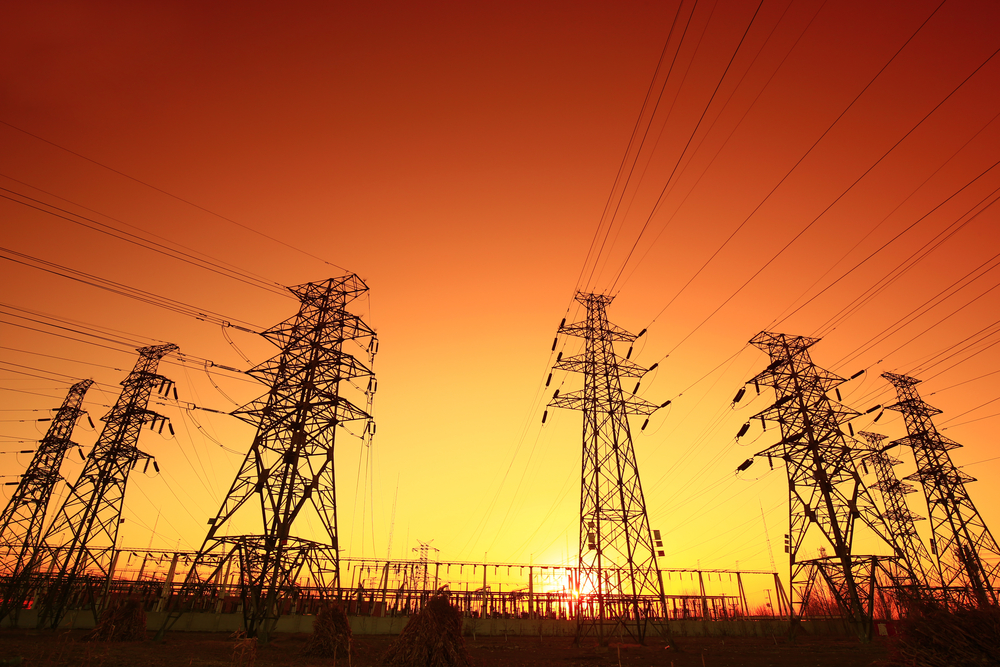The Energy Crisis in Healthcare: Mitigating Financial Losses Through Reliable Power Solutions

Hospitals are pillars of our communities. From emergency surgeries to life-support systems, hospitals rely on uninterrupted power to ensure patient safety and smooth operations. When the power goes out, the consequences can be severe: patient safety, canceled procedures, disrupted care, patient transfers, and significant financial losses.
Unfortunately, these outages are becoming increasingly common due to the rising frequency of natural disasters and the growing strain on our aging utility infrastructure.
The Growing Challenge of Power Outages
Natural disasters like hurricanes, wildfires, and extreme storms are more frequent and intense than ever before. These events leave millions without power each year, creating critical challenges for hospitals. In 2021, Hurricane Ida caused widespread outages, forcing hospitals to rely on backup generators. While helpful, these generators often have limited capacity and fuel supply, making prolonged outages a significant risk.
Further, the U.S. power grid is showing its age. Built decades ago, much of our utility infrastructure was not designed to handle today’s increasing energy demands or the severe weather events we’re seeing now. Hospitals relying on the grid are at greater risk of extended outages, threatening the ability to provide uninterrupted care.
The Impacts of Power Outages on Hospitals
In 2022, the U.S. experienced 18 major weather and climate events, each costing over $1B. Power outages significantly contribute to these enormous costs, as they can shut down businesses and entire regions for hours or days. For hospitals, the financial impact can be severe: canceled elective surgeries, outpatient appointments, and diagnostic procedures reduce revenue, while disruptions to billing and electronic health record (EHR) systems create administrative inefficiencies and delay reimbursements.
Beyond financial repercussions, power outages can force hospitals to transfer patients to surrounding facilities, resulting in substantial logistical challenges. Ambulances may not be readily available, and receiving facilities can quickly become overcrowded, placing immense strain on resources and personnel during these transfers.
These logistical challenges are further exacerbated by the significant risks to patient safety during outages. Many critical hospital systems, from ventilators and monitors to refrigeration for medications and sterilization equipment, depend on reliable power. While backup generators provide temporary relief, they are often insufficient during prolonged outages. These scenarios jeopardize patient safety and outcomes—a risk no hospital can afford to face.
Microgrids: A Resilient Solution
Microgrids are vital for ensuring energy resiliency in hospitals, offering reliable and efficient on-site power generation. By integrating combined heat and power (CHP) systems, hospitals can simultaneously produce electricity and capture usable heat. This cogeneration approach not only improves energy efficiency but also provides a consistent and dependable power supply for critical healthcare operations.
Advanced control systems actively monitor and manage energy flows, optimizing performance and enabling seamless transitions between power sources to maintain operational stability under all conditions. A key feature of microgrids is their ability to operate in “island mode,” disconnecting from the main grid during outages or disruptions. This capability ensures that hospitals can maintain uninterrupted services even during widespread power failures, safeguarding patient safety and continuity of care.

Case Study: At Doctors Community Hospital in Lanham, Maryland, Unison Energy installed a 1.2 MW combined heat and power (CHP) system to modernize the hospital’s energy infrastructure and enhance resilience. This system, comprising two 600 kW natural gas-fired engines, operates at 63% efficiency and supplies both electric and thermal energy, supporting the entire hospital during island mode events. The CHP system has enabled the hospital to save approximately $300,000 annually on electricity bills. Additionally, by reducing reliance on traditional boilers, the hospital has decreased maintenance requirements and cut annual carbon dioxide emissions by 57%, equating to about 6,400 tons per year.
Energy as a Service: A Transformative Model for Hospitals
For hospitals seeking to enhance energy resiliency without the burden of significant upfront investments, Energy as a Service (EaaS) offers an innovative and cost-effective solution. Through EaaS, the microgrid is designed, built, owned, operated, and maintained by a third party, enabling hospitals to focus their resources on delivering exceptional patient care while benefiting from state-of-the-art, resilient energy infrastructure. The hospital pays a predictable monthly fee for energy services.
Advantages of EaaS for Hospitals:
- No Upfront Capital Costs: With EaaS, hospitals can implement advanced energy systems without diverting capital from critical patient care investments.
- Predictable Energy Costs: Long-term agreements provide budget stability, allowing hospitals to plan effectively for future operational expenses.
- Guaranteed Performance and Reliability: Expert operators ensure consistent, reliable energy supply, essential for maintaining life-saving operations during outages or disruptions.
EaaS is a particularly advantageous model for hospitals, where uninterrupted power is vital for patient safety, but financial resources are best allocated toward improving healthcare services. By adopting this approach, hospitals can achieve energy resiliency, reduce operational risk, and focus their capital investments on what matters most: enhancing patient outcomes.

Why Hospitals Choose Unison Energy
Unison Energy specializes in creating resilient energy solutions tailored to hospitals. Our approach includes custom-designed microgrids with CHP systems to ensure hospitals stay operational during grid outages.
When hospitals partner with Unison Energy, they gain more than just a reliable power system—they gain peace of mind. To learn more about a customized resiliency solution for your hospital, contact us today.
Energy insights, delivered
Subscribe for more content.
